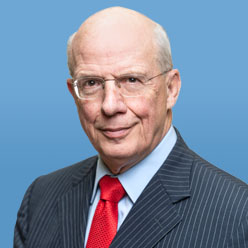Two years after the 1962 Cuban Missile Crisis brought the world to the brink of a nuclear war, the Soviet Politburo ousted its leader, Nikita Khrushchev. Then-Politburo member Pyotr Shelest told me that many believed Khrushchev's predisposition for unacceptable risk would again put the USSR in needless danger.
This history begs the question: What level of risk on the part of current Russian President Vladimir Putin is acceptable to the elites whose collective support is central to his continued rule?
Putin's past assaults against Ukraine were measured by caution, preserving deniability until victory was assured. Putin did not claim ownership of the "little green men" whose actions paved the way for Russia's eventual annexation of Crimea in 2014 until he was sure that the West would not respond meaningfully, and that his government could properly control the peninsula. Even today, despite the Kremlin's role in organizing, financing, equipping and even supporting Russian soldiers to lead anti-Kyiv forces in the Donbas, his administration still maintains the fiction that Ukraine is in the throes of a civil war to which Russia is just a bystander.
By contrast, Putin's actions in the current crisis are very different. Russia is clearly the aggressor, with a massive military buildup in recent weeks along the common border between the two countries and credible threats issued to the West, and to Ukraine. This time around, there are no "little green men" and "separatists" to provide Russia's leader with an easy political "off ramp" or plausible deniability.
These realities are clearly evident to the West, which understands the Russian roots of the present tensions and is upping its support for Ukraine and for threatened NATO members in response to the current threat. The specter of Russian aggression is also having a revitalizing effect on the alliance as a whole. Russia's 2014 incursion into Ukraine reversed declining defense budgets within NATO, as the bloc's 30 members scrambled to reestablish some semblance of deterrence against Moscow. Now, Putin's renewed adventurism vis-à-vis Ukraine is liable to generate still more military mobilization and modernization in the West.
All this leaves Putin with a meager set of strategic options. On the one hand, military action on any scale is risky. Ukraine is fundamentally more important to Ukrainian troops than it is to Russian conscripts. The Ukrainians will fight, and this inevitably means a politically unacceptable number of body bags returning to Russia.
Furthermore, Western threats to further destabilize Russia's already-limping economy must be taken seriously in Moscow. The effect these economic measures will have is more significant than generally understood. Collectively, Russia's super rich are central to Putin's hold on power. These oligarchs already find it difficult to spend their hard-stolen money or run legal ventures in Western countries, where most have their second and third palatial homes. They are not happy now, and will be even less so if their preferred European lifestyles are further curtailed.
On the other hand, a negotiated de-escalation could also be risky for Russia. If, after creating Europe's greatest post-Cold War political crisis, Putin is not able to convince Russia's elite that his policies were sound, the dynamics that led to Nikita Khrushchev's fall from power may bring him down as well.
All of this is why anecdotal evidence suggests many Russian power brokers have misgivings about Putin's continued rule. But would they say so publicly? More to the point, would they ever act to remove Putin when they themselves have so much to lose?
Today, the answer is still probably "no." But there is invariably a tipping point, and the current Ukrainian crisis could well provide it. Moreover, there is plenty of precedent for ousting dictators. A 2019 American Foreign Policy Council study of the fate of dictators in 120 post World War II countries of 10 million or more found that 21 percent were assassinated, and 42 percent were forcibly ousted from office. These percentages held up even for those leaders, like Putin, who maintained power for more than two decades.
Russia's president knows these statistics well, and behind the current official bluster from Moscow is the sobering realization that he is undertaking a colossal gamble.
